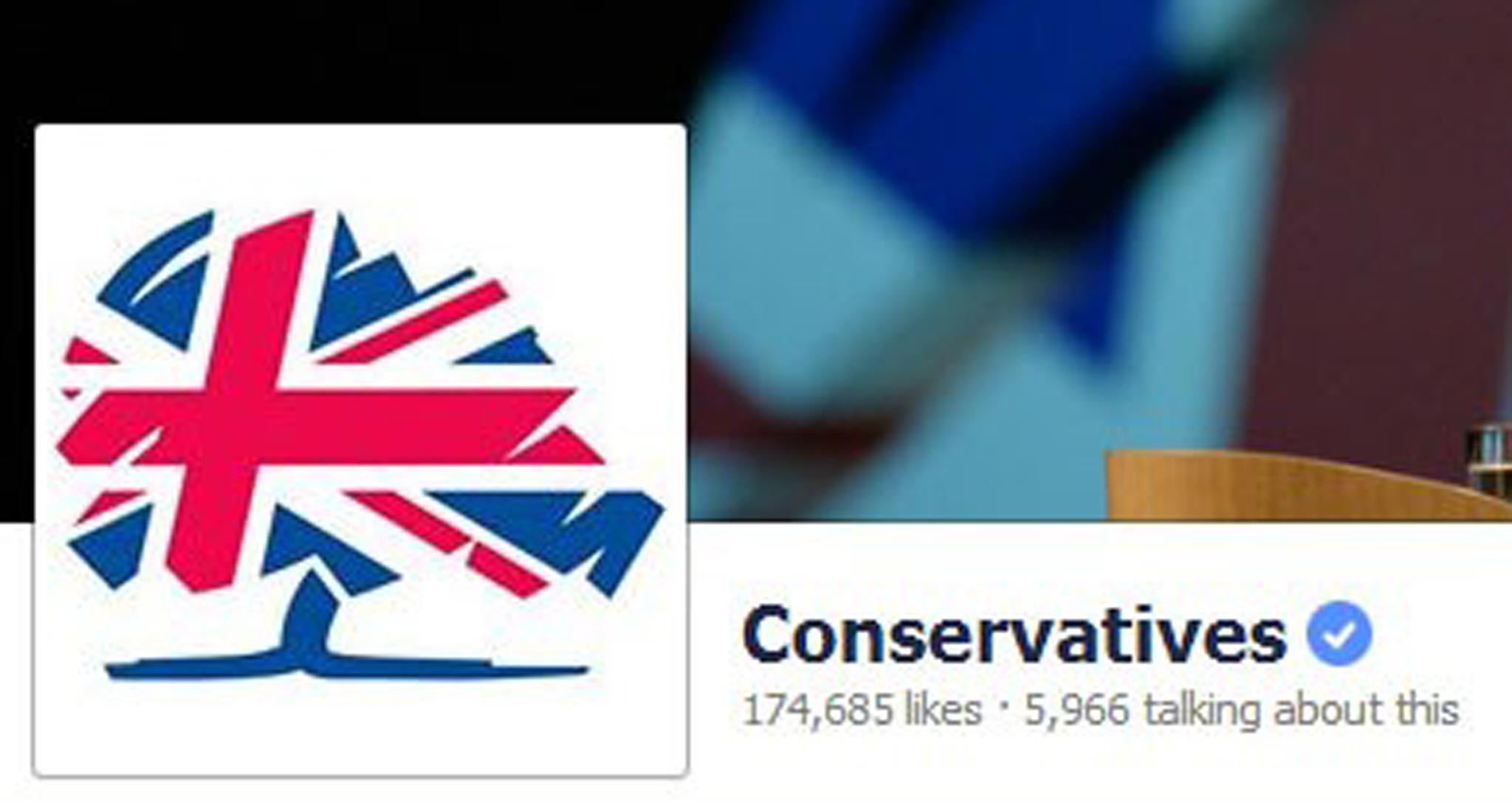From Thailand to Mexico, why the Tories’ Facebook page is so popular
Party’s use of paid digital advertising services has bought them support in some exotic quarters

One is a middle-aged Russian woman who lives in the town of Samara 650 miles east of Moscow and “likes” Tony Blair and Pravda.
But according to Facebook she’s backing “real change in Europe” on 22 May and voting for David Cameron.
Then there is the man from Mexico City called Yeyo Garuno who is all in favour of Mr Cameron’s welfare cap on benefits payments. Or indeed PiYapong Pakalertid who has signed up to be part of Mr Cameron’s Team 2015 on Facebook. He lives in Praken, Thailand.
It is surprising what kind of support you find for Mr Cameron by spending half an hour on the Conservatives’ Facebook page. Welcome to the strange experience of British election campaigning in cyberspace where support is not quite what it seems and Facebook “likes” can be misleading.
Both Labour and the Conservatives are investing significant resources building up their digital campaigns in the run-up to 2015 – with varying degrees of success.
Labour is largely trying to replicate the Obama campaigns of 2008 and 2012 where digital media was used to contact, engage and motivate people who were likely to support the party anyway. Its aim is to get them off their computers and help the party canvas in key marginal seats – or at least get them to give money.
The Conservatives are using paid digital advertising on platforms such as Facebook and Google to get their message across to swing voters. But, as they are discovering, indiscriminate promotion can have unintended consequences.
It emerged recently that the Tories had paid Facebook to promote their page and increase their number of likes and people “talking about” their Facebook page. Facebook does not reveal details of such advertising deals, but marketing experts say the campaign would have cost about £7,500 of party funds.
The results have been dramatic. From being almost 20,000 likes behind his deputy Nick Clegg (who was on about 60,000) Mr Cameron leapfrogged him in less than a month and now has almost 200,000 “supporters”. Ed Miliband had only 40,000 “likes”.
However the use of these supporters to Mr Cameron is questionable given their strangely international bias.
The Independent paid Facebook to send about 30 direct messages to people who had “liked” various Conservative campaigns, asking if they were genuine supporters. Sixteen never replied; eight confirmed they were and others had problems with English. Asked if his was a genuine “like”, Fayaz Ahamed from Sri Lanka replied: “Plz riqwast to me.” Asked if he supported the Conservatives he added: “Yes plz accept me” before adding: “Hello I am waiting for the job now Did u have??”
Ed Miliband’s page also has some international support but nowhere near the same level as the Tories. Matthew McGregor, Labour’s online strategy guru, claims this is a mark of success. “Labour’s digital strategy is designed to connect with our campaigning in local communities and constituencies,” he says. “So while we are using digital tools to engage online with people who are sympathetic to Labour ideas, our success will be judged by whether we can convert those people to help us campaign.”
How successful they are is hard to judge, and they have also made some gaffes. A recent campaign poster wrongly claimed that VAT was charged on food while David Axelrod – Labour’s star campaign signing from the US – managed to get Ed Miliband’s Twitter name wrong in a tweet.
Mark Pack, who co-ran the successful Liberal Democrat website Lib Dem Voice, says the most notable difference is the Tories are attempting to use digital media more to appeal to potential swing voters while the others are using it more to motivate their base.
“In some ways that is mirroring in the digital space what the parties used to do in previous elections. Labour and the Lib Dems have always been traditionally stronger on the ground,” he said.
How all this will play out remains to be seen but the Conservatives at least have a sense of humour about their new-found global fan base.
A Conservative Central Office source said it just showed their “economic plan is getting reach across the globe”. He’s right: that was one of the policies “liked” by Kourosh Madani from Tehran.
Online strategies: Parties on the net
Labour
Targeting known supporters, the party is using questionnaires to find out which issues people care most about and where they live.
Conservatives
The party is using paid-for advertising on the internet to reach target voters. This includes techniques like paying Google to display adds when people type in search terms.
Liberal Democrats
The Lib Dems have bought voter-identification software called Nationbuilder. It allows activists to target resources at voters who are most likely to stick with the party.
Subscribe to Independent Premium to bookmark this article
Want to bookmark your favourite articles and stories to read or reference later? Start your Independent Premium subscription today.

Join our commenting forum
Join thought-provoking conversations, follow other Independent readers and see their replies